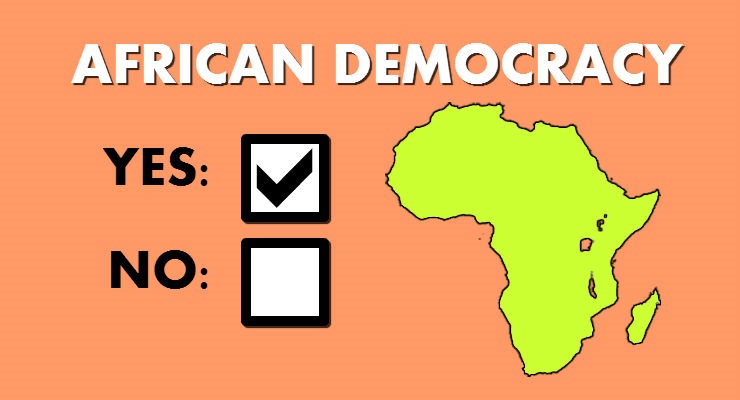
Ever since the (re)adoption of democracy in many countries in Africa in the early 1990s after close to three decades of one-party rule, quite a few African countries have made great strides at becoming more democratic while several others have simply remained authoritarian nominal democracies. Two good examples are Ghana and the Republic of Cameroun.
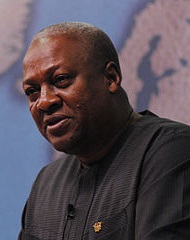
While Ghana has experienced several political upheavals and suffered several military coups since its independence in the 1957, she is today becoming a beacon of democracy. According to the Economist Intelligence Unit’s Democracy Index, Ghana has moved from a hybrid democracy since 2006 to something close to a full democracy in 2016. In the meantime, Cameroun has not wavered from the authoritarian regime category during the same period.
An additional problem is that too few African countries are improving like Ghana, at least not as fast. However, the question is why are some African countries improving in democratic terms while others are not? It is important to note that democracy is conceived here as the regime type. Economist Intelligence Unit’s Democracy Index describes a range from full democracy through flawed and hybrid democracy to authoritarianism or nominal democracy. In a full democracy:
“basic political freedoms and civil liberties are respected, and tend to be underpinned by a political culture conducive to the flourishing of democracy. The functioning of government is satisfactory. Media are independent and diverse. There is an effective system of checks and balances. The judiciary is independent and judicial decisions are enforced. There are only limited problems in the functioning of democracies” (https://goo.gl/HDrtyU).
On the polar opposite end, an authoritarian regime is one in which:
“political pluralism is absent or heavily circumscribed. Many countries in this category are outright dictatorships. Some formal institutions of democracy may exist, but these have little substance. Elections, if they do occur, are not free and fair. There is disregard for abuses and infringements of civil liberties. Media are typically state-owned or controlled by groups connected to the ruling regime. There is repression of criticism of the government and pervasive censorship. There is no independent judiciary” (idem).
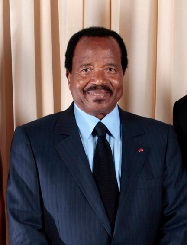
Limiting Political Mandates
There are several possible explanations to the highlighted difference in democratic advancements and levels between African countries. Looking at the case of Ghana and Cameroun, the limitation of Presidential terms of office could provide a clue. In Ghana, “a person shall not be elected to hold office as President of Ghana for more than two terms” according to the Ghanaian Constitution, Article 66 (2). In Cameroun on the other hand there is no limitation.
The limitation of mandates is likely to provide the grounds for more accountability in office and adherence to the rule of law. In their first term of office, incumbents tend to work hard to perform well in office in order to seek one additional term and in order to provide the background for the maintenance of their party in power in subsequent elections. This creates a favourable environment for sound political competition and respect for political freedoms.
On the other hand, the possibility to seek re-election indefinitely can lead the incumbent to concentrate more on maneuvers to thwart the democratic process. Such maneuvers or strategies can include putting in place patrimonial politics that has a pervasive nefarious influence on the legislative, the electoral mechanism, the justice system, the security apparatus and the media, with the sole aim to maintain the incumbent in power.
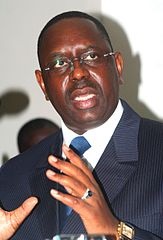
As the incumbent keeps “winning” the elections through these strategies and behind the cloud of deformed legality he/she keeps implementing legislative frameworks that further deteriorate political freedoms in favour of authoritarianism.
The Limits of Term Limits
It would seem therefore that in comparing African countries, those with term limits for the position of the Chief Executive are more likely to have democratic advancements or to be more democratic than those in which there are no term limits. Countries like Senegal, Ghana, Namibia, South Africa and Botswana that are amongst the most democratic in Africa all have term limits.
However, many undemocratic countries also have term limits. This appears to make the relationship between term limits and democracy spurious. This is not necessarily the case since term limits operate within a wider Constitutional framework and the extent to which the Constitution can be modified is another important factor to be taken into consideration.
Where Constitutions seem to be the handbook of the incumbent limitation of term limits can equally becoming the private affair of the incumbent and therefore do not matter. Today term limits are allowed and tomorrow they are removed. It is not the rationale for such manipulation that is absent. Cameroun and Congo-Brazaville are examples.
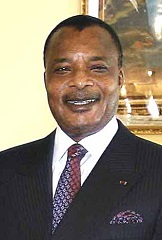
There is always an argument as to why there should be term limits now and no term limits later. Constitutional stability is therefore another important intervening variable.
A Culture of Stability
That a country has Constitutional stability might also depend on the level of political culture in society. Some societies will generally not tolerate individual subversion of democracy. Either the population actively opposes subversion or the political elite have a high sense of political independence.
Such political culture is a matter of antecedence and in the case of Africa can be traced to colonial influence. It would seem that countries formerly under British colonial rule are more likely to be more democratic than former French colonies. The British were more democratic in their colonial policies and ruled their colonies in a way as to foster a high sense of democratic culture in the population, which sense has thrived despite the dark years of the Cold War.
This is unlike in French colonies where mostly only repression was the order of the day. Citizens of former French are less predisposed to question authority than are citizens of former British colonies. This has created a situation where subversion goes unabated by the populace. While this situation seems to be changing for contemporaneous reasons, as seen recently in Senegal and Burkina Faso, most of francophone Africa remains blinded by the farce of Machiavelli’s “The Prince”.
Flexible or Rigid Systems
Therefore, while it appears that term limits have advanced democracy in Africa’s most democratic countries this has been favoured by progressive gains in constitutional stability influenced by a strong pre-acquired political culture for mostly former British colonies. Addressing the question of the discrepancies in democratic advancement between African countries is therefore not an easy issue and can appear overly complex. Antecedent and intervening factors are very important when considering any single independent variable.
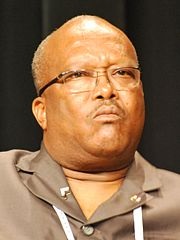
In this case, term limits appear to be clearly linked to democratic advancement. But because term limits are used even in the most vicious autocracies on the continent one has to dig deep.
Term limits are only an effective tool for democratic advancement if they co-exist with the type of Constitutional stability that does not make the Constitution the private handbook of the incumbent, independently of whether it is a flexible or rigid Constitutional regime.
The extent to which some incumbents have manipulated the Constitution in their favour in Africa has made political scientists to begin considering Constitutional manipulation a behavior of non-compliance. Incumbents are only able to subvert democracy in this manner when they go unchallenged. In Africa the antecedent conditions have made this possible for some incumbents. And this appears to be more rampant in former French colonies where the stage for repression had been set by the French and the mystification of the position of the Head of State had been beaten hard into the minds of the population. As the “Chef de l’Etat” stays on in power his longevity in power means less and less freedoms for the people. Terms become not only unlimited but are overly long, five years for some and up to seven years for others. The temptation might even be to make to make one term up to 10 years long.
Whatever the case, it is important to carry out more studies on exactly how the nature of term limits in Africa is affecting democracy and under which conditions term limits can ensure democratic enhancements.
Leave a Reply